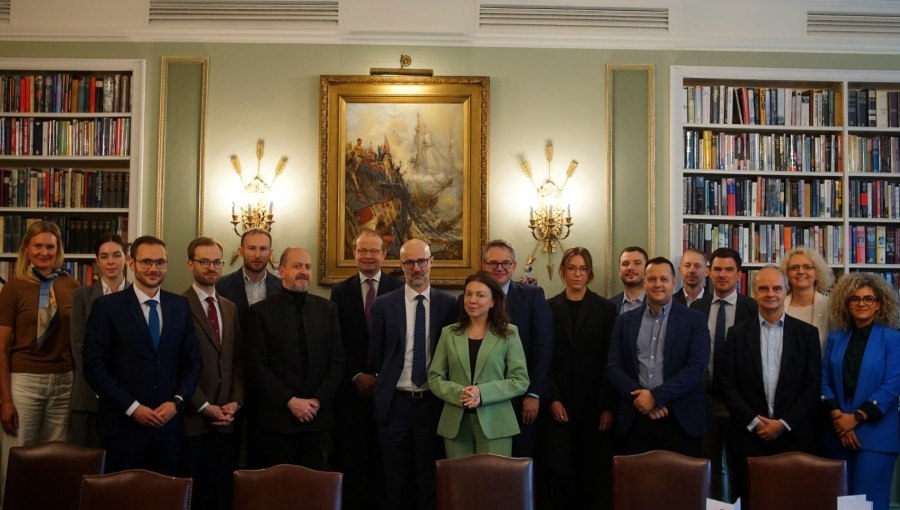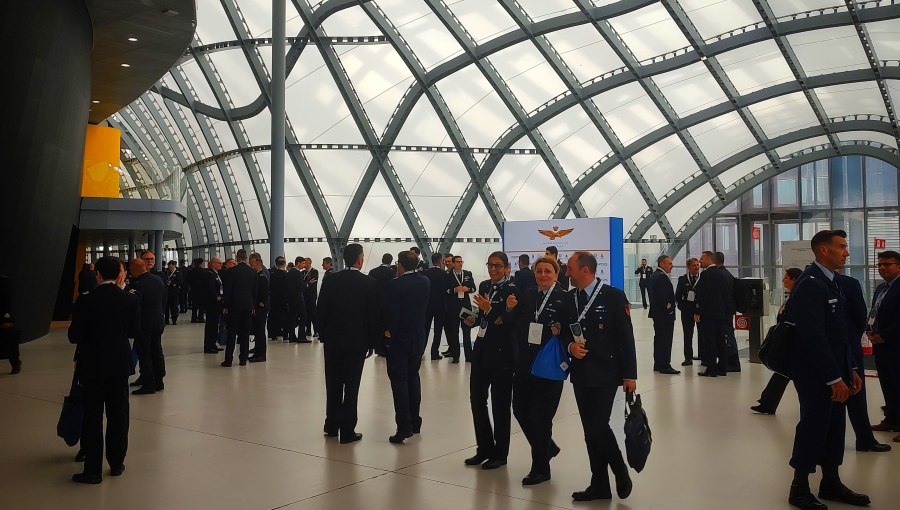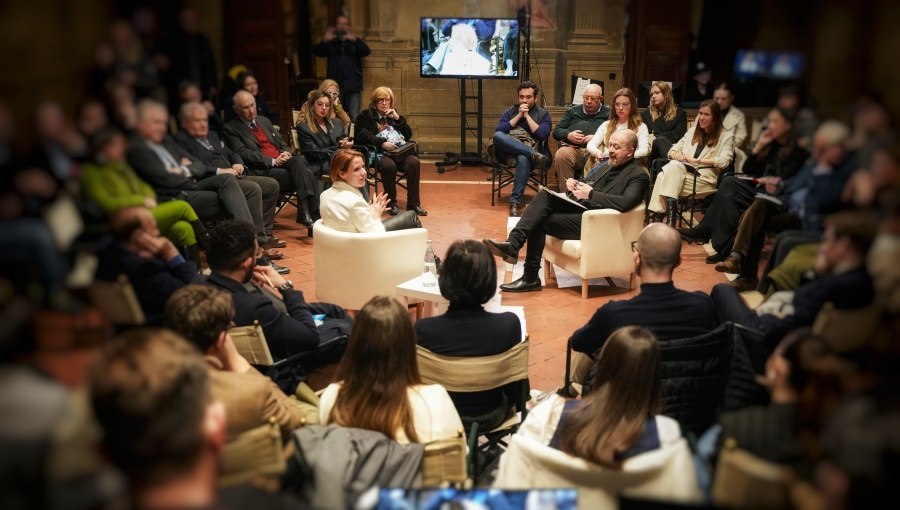Institute Director Francesco Lapenta Speaks at Eighth Transatlantic Forum
Insights from the Eighth Transatlantic Forum – Rome, February 8, 2025
On February 8, 2025, the Italian Ministry of Foreign Affairs and International Cooperation and the Center for American Studies in Rome hosted the Eighth Transatlantic Forum. The event brought together senior figures from diplomacy, academia, and industry across Europe and the United States to address the escalating U.S.–China strategic competition in critical non-military technological domains.
Structured around the release of a new Geopolitical Brief produced with the contribution of the Italian Unit for Analysis, Planning, Statistics, and Historical Documentation, Directorate General for Public and Cultural Diplomacy of the Ministry of Foreign Affairs and International Cooperation, the Forum examined three central axes of geopolitical rivalry:
1. Emerging Technologies as Strategic Battlegrounds:
Artificial intelligence, quantum computing, and other dual-use technologies are reshaping global power dynamics. The Forum emphasized how these tools are not only economic drivers but also strategic assets with military implications that blur the boundary between civilian and defense domains.
2. Semiconductor Strategy and Economic Containment:
The session analyzed how the semiconductor industry has become a linchpin of national security. It contrasted the U.S.’s restrictive export control measures with China’s state-backed “Made in China 2025” initiative, highlighting how industrial policy has become a primary vector of geopolitical confrontation.
3. Space as a Strategic Frontier:
Speakers addressed the re-militarization and politicization of outer space, illustrating how space exploration is increasingly being reframed as a competitive theater for asserting technological and strategic dominance.

Francesco Lapenta, Founding Director of the Institute of Future and Innovation Studies, offered a critical analysis of the Trump administration’s tariff regime within this complex geopolitical context. In Lapenta’,s opinion, these apparently chaotic measures represent a deliberate attempt to fundamentally renegotiate the geopolitical equilibrium established by the Bretton Woods agreements. Director Lapenta argued that Trump is strategically forcing a comprehensive global renegotiation of market relationships to create a more advantageous tiered hierarchy and a clearer map of economic and political alliances, specifically positioned against China, which is perceived as America’s most formidable competitor.
In Lapenta’s opinion this risky strategy leverages America’s unique strengths (the global dominance of the dollar as a reserve currency, and the country’s global economic and technological edge) to move away from traditional multilateral frameworks (that favored global growth and China’s rise) towards a system that more explicitly advances U.S. interests (and reshoring on industrial production). By deploying aggressive economic measures like tariffs, Trump’s approach aims to profoundly disrupt the market that has so far favored China’s economic and technological rise (including devaluing the dollar while preserving it’s global status) while simultaneously pressuring both allies and competitors to realign their economic relationships in ways that reinforce American primacy in critical sectors and supply chains and force a reconfiguration of global interdependence. This approach places strategic sectors, such as semiconductors, quantum technologies, rare earths, and space economy at the center of a new competition for a new world order, one that Trump hopes to redesign to reinforce U.S. primacy in the face of systemic geopolitical rivalry.
Director Lapenta also highlighted how the space economy, particularly the race to generate patents from space-based research, is becoming a new frontier in sustainable innovation. Research in space, long a source of Earth-applied patents, is now seen as critical for developing the closed-loop technologies and circular systems required to sustain human life in space, offering a high-stakes testing ground for solutions that will eventually reshape economies on Earth.
The Institute of Future and Innovation Studies extended its appreciation to the organizers and participants of the Forum. In alignment with the Forum’s themes and goals and the Institute’s mission, the Institute’s Director has offered to host a dedicated follow-up roundtable at John Cabot University in Rome, fostering further academic and policy-oriented dialogue on the evolving configuration of global technological power.





